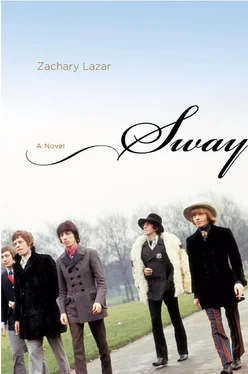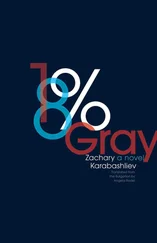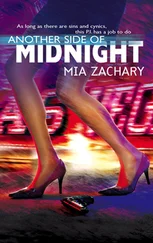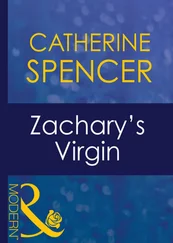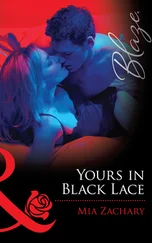The girl he leaned over reached out her fingers. Beside her, the girl in the lumberjack shirt was looking at him mischievously, as if waiting for the punch line. Anger looked at Bobby, gravely convinced of the threat he was making, but the look on Bobby’s face was blank, his skin gray, his eyes two black pupils that seemed blind.
There was no way for Anger to play this remark off now as some risqué joke that the others were too tense to laugh at. There was no way to make any sense of the situation at all.
In the vestibule outside the front door, Anger had to step around a clutter of shoes and boots that had been left there by the upstairs neighbors. It was too cold outside for the clothes he was wearing — a sweater but no jacket — but he kept walking, past the huddled group of kids outside the corner grocery with its dim brown light. He walked all the way to Golden Gate Park before he realized he had forgotten his keys.
He hurried back at a half jog, then a self-recriminating walk, then a half jog. There was the same group of kids, witnesses now to his absurdity. In the vestibule, he stared at the lock for a long moment and rattled the door, but there was no point, it wasn’t going to yield, and Bobby wasn’t going to let him back in.
“You never know what is enough unless you know what is more than enough.”
— WILLIAM BLAKE, from The Marriage of Heaven and Hell
ANGER HAD BEEN THEREfor close to two hours now, waiting for them to get started. He was watching them from the control room, not filming yet, just standing behind the sound engineers on their stools, dressed in the same flared black pants and purple acrylic shirt he’d been wearing every other day for more than a week. Through the soundproof glass, he could see Mick trying to teach the new song to Brian. Brian was very stoned and Mick seemed almost embarrassed by his perseverance, humoring him, smiling and shrugging his shoulders as he demonstrated the simple beat on his acoustic guitar. “That’s the other one,” he said. “You’re thinking of that other bit.”
It was disappointing to watch them tonight, in spite of the other times he’d seen them drain the air from a room just by stepping into it. They were struggling — he had always thought the whole point of them was their effortlessness. It was clear that if Mick was going to rouse himself out of mediocrity tonight, he was going to have to be far more ruthless with Brian.
The studio was like a concrete bunker, with a shabby red carpet on the floor. Styrofoam cups and beer bottles rested on the amplifiers and the soundproof panels, which were orange or brown or green. Finally Keith arrived, coming into the control room, wearing dark sunglasses and a torn white shirt.
“Keep taping,” he said to the sound engineers. “Just keep it rolling. Let’s not miss it this time.”
The engineers did not look up from their panel of dials. Keith was looking at Anger now.
“Did you come over with Mick?” he said.
“No, they sent me a car.”
“Right, good. The star treatment.” He turned and looked at the others through the soundproof glass. Brian was looking steadily into Mick’s eyes as he played something on his guitar, the two of them working their way into further and further complications, further from any possible song. “You should ring up Anita sometime,” Keith said. “She gets bored. She keeps asking about you.”
He walked into the booth then, with his sunglasses still on. As he passed a pair of carpeted sound buffers, he picked up his guitar with such fluid indifference that it might have been a jacket or a set of keys. Without a word, he sat down in the chair next to Mick and started playing, not even looking at Brian. He looked at Mick, nodding his head, taking up the song in a completely different style, as if he’d been there all along, sifting through the variations.
It was a folk ballad, minor-keyed and slow. It was more English-sounding than American, almost mournful, like a dirge. The words, Anger knew, were a monologue in the voice of the Devil. They spoke of the evils wrought by humanity in the sway of a sly, sophisticated con man who in the end was just a bewildering reflection of themselves.
Mick looked up at Anger through the panel of soundproof glass. He was always flirting, always putting his hand on Anger’s arm or leaning forward to state his opinion. The way he spoke, at least around Anger, was arch, camp, blasé, as if he were imitating some idea he had of how an heiress might speak. They had met at a party at Robert Fraser’s gallery, all mirrors and pink light, and immediately Mick had shown an interest in the Lucifer film, more interest than Anger would ever have thought possible.
“I should show you what I get in the mail sometimes,” Mick had said. “Death threats, curses, hexes. That’s the mood now, it’s very dark. You start to wonder what it means. It’s too easy to just write it off as nonsense.”
His new songs were all Devil songs in one way or another. Perhaps the Lucifer film was something to help him fill out this new role, the role of Mick — the Prince of Darkness, the Angel of Light, it wasn’t easy to tell the difference anymore. It was a role Mick had stumbled into, not exactly chosen, but it was also a role that practically nobody else could have even attempted. Brian had been preparing for it his whole life, and you could see it eating him from the inside, the dream that had come true but not in any of the ways he’d expected.
“It’s just music, but they want us to be revolutionaries now,” Mick had said. “So fine, let’s tear everything down, start over, what we have now makes no sense anyway. When they busted us last year, it was like the whole country was pressing up against you, trying to shove you down into a hole. But then you realized they were just shoving themselves into the hole, that you were just getting bigger and bigger. They’d made you into these myths.”
It was 1968. The press was calling it the Year of the Barricades. In France, there had almost been a revolution that May, fueled by dadaist slogans and students throwing stones. It was not hard to see the band as emblematic of the desire you could feel all around you now, not for peace and love, but for something militant, perhaps chaos for the sake of chaos.
The drummer was practicing drumrolls in his corner. Then he leaned back his head and shook it, loosening up the muscles in his neck, his face as blankly patient as a horse’s. Brian was beckoning to Keith from across the length of the room now, spreading his opened hands for a cigarette. He waited for Keith to throw him the pack, then he waited even longer before Keith noticed him again, then he dropped the lighter when Keith finally threw it to him and he stood for a long moment looking at the floor.
It would take them three nights to put the song into its finished form. In those three nights, it would change from a folk song to a psychedelic song to a soul song, and then emerge as something raw and percussive, like the voodoo music of Haiti. It would end up the exact opposite of a mournful dirge or an English folk song. It would start with a yelp, a monkey screech, and a flat patter of bongos, a resonant thud of conga drums, a locust-like hiss of maracas. It would become a wild celebration of everything it had started out lamenting.
But for now it was just a song with three chords for the verse, one more for the chorus, and they couldn’t even play it through. They were lost, as tentative as beginners. The bass player sat absolutely still on a straight-backed chair, dressed in a red velour outfit with matching red boots, smoking a cigarette he held with the straightened tips of his first two fingers. Brian sat inside an enclosure of soundproof panels, his eyes half-closed. He seemed to be propping himself up by gripping the strings of his guitar, not so much an instrument as a beautifully painted wooden object he cradled half-consciously in his lap.
Читать дальше
